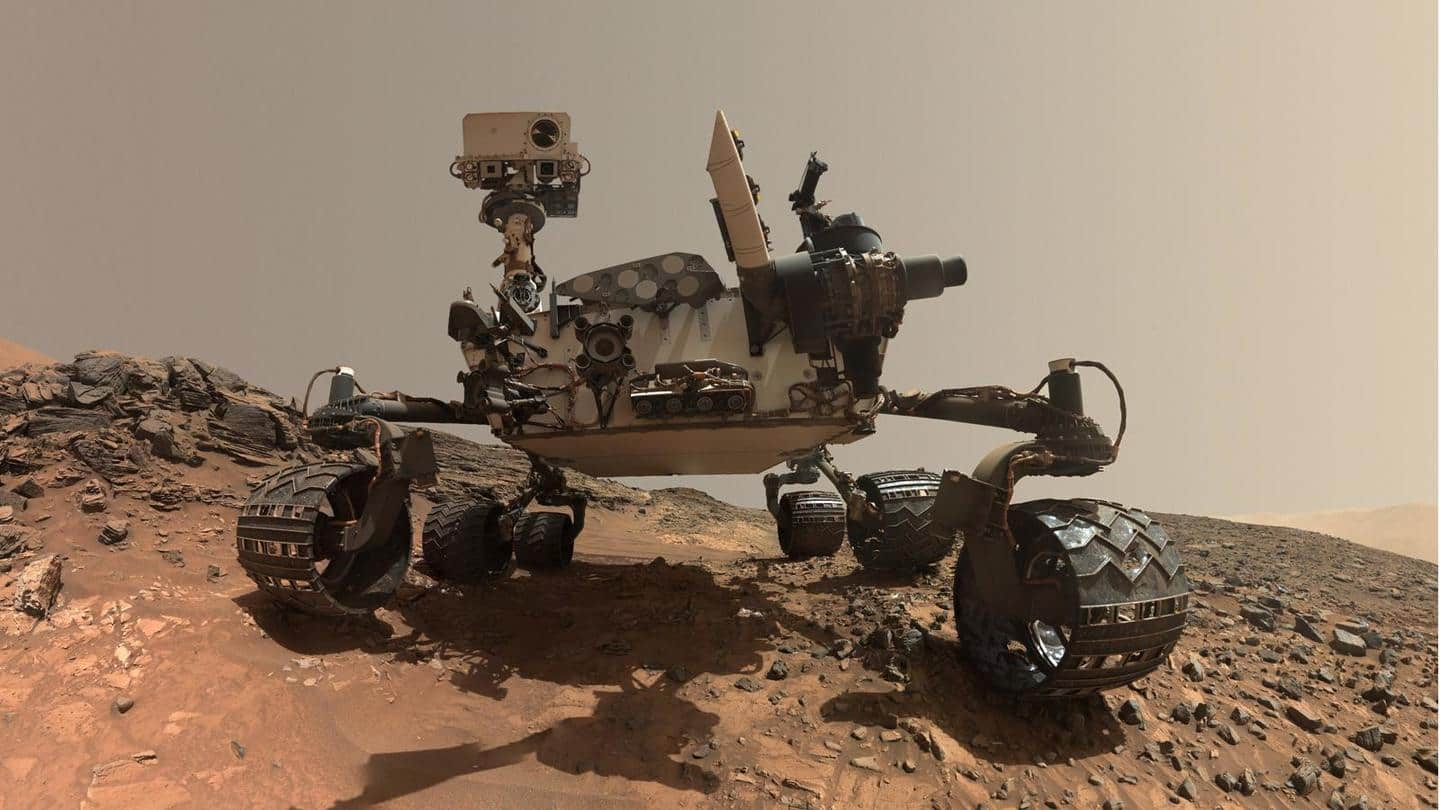
NASA's Curiosity Mars Rover finally arrives at special 'salty region'
What's the story
NASA's Curiosity Mars Rover recently celebrated a decade on the red planet. Now, the Rover has finally made its way to the mineral-rich salty region on Mount Sharp and successfully drilled out its 36th rock sample named "Canaima."
This 'sulfate-bearing unit' is predicted to contain vital information about the shift in the climatic conditions on Mars that rendered it as a frigid, inhospitable planet.
Context
Why does this story matter?
This particular mineral-laden region has been a topic of interest ever since it was spotted by Mars Reconnaissance Orbiter, much before Curiosity Rover landed in 2012.
It's a long-held assumption that the mineral remnants were left behind when water dried up from ancient water bodies on Mars.
The Rover has also spotted salty minerals such as magnesium sulfate, sodium chloride, and calcium sulfate.
The journey
The Rover edged its way through a 'treacherous terrain'
Throughout its journey, the Curiosity Rover was consistently re-oriented so that it could communicate with Earth.
The team at NASA tactfully guided the Rover through the sandy, mountainous terrain of Paraitepuy Pass to safely bring it to the intended 'sulfate-rich' region.
However, this new rocky location makes it hard for the Rover to position all its six wheels on stable ground.
Sampling
The new drilling algorithm minimizes the use of percussion
"As we do before every drill, we brushed away the dust and then poked the top surface of Canaima with the drill. The lack of scratch marks or indentations was an indication that it may prove difficult to drill," said Zamora-Garcia, project manager.
"With the new drilling algorithm, we felt comfortable collecting a sample of Canaima. As it turned out, no percussion was needed."
Information
Equipment ported by the Rover will investigate the rock sample
The Rover's Chemical and Mineralogy instrument (CheMin) and Sample Analysis at Mars (SAM) will analyze the obtained rock sample. "The more and more interesting the science results get, the more obstacles Mars seems to throw at us," said Amador-Frenc, Curiosity's science operations coordinator.